Transparency is incredibly important in any professional setting. Openness and honesty build trust. But without trust, you can’t expect to have a good working relationship between management and the staff. Simply put, if your boss misrepresents how much work you’ll be doing only to dump tons of overtime on your shoulders, it’s a toxic situation to be in.
Redditor u/ButtKylerJr went massively viral on the r/antiwork online community after he shared how he was lied to during his job interview. Frustrated and wanting to fight for a healthy work-life balance, he decided that the only reasonable option was to quit. Check out the full story below.
We got in touch with u/ButtKylerJr, and he shared his perspective on prioritizing our loved ones, figuring out work-life balance, and spotting the signs of a truly great workplace. He also shared a really wholesome update about what happened after he quit his old job. You’ll find Bored Panda’s interview with the author as you read on. Make sure you don’t miss it!
It’s hard to trust your superiors if you find out that they’ve lied to you about basic things like your work hours from the start
Image credits: Tima Miroshnichenko / pexels (not the actual photo)
An employee opened up how they immediately quit after facing a toxic situation at their new job
Image credits: puhimec / envanto (not the actual photo)
Image source: ButtKylerJr
There’s nothing more valuable than spending quality time with your loved ones
We asked the author of the story for his take on how everyone can focus more on their family and create a healthier work-life balance. In their view, this balance is something you only figure out after getting it wrong several times.
“What makes it more difficult is that a lot of people are in the mindset of ‘I need this job so I can SUPPORT my family.’ People think that they have to afford that trip to Disney World so their kids can have a fond memory. When in reality, the kid will more likely remember digging for worms on a Saturday more,” u/ButtKylerJr told Bored Panda.
“Some of my best memories are sitting with my grandfather at night and asking him about the stars. ‘What’s the biggest star?’ ‘How many Earths could fit inside the sun?’ ‘Why do stars twinkle?’ Those are the best memories I have, and it cost us $0 to do. I understand that people have a mortgage and student debts. But money isn’t the key to happiness,” he opened up to us. Many of us likely have similar fond memories of spending time with our loved ones when we were small.
For u/ButtKylerJr, quitting the job he described in his story was “the easiest decision” that he’d ever made professionally. “I am comfortable with who I am as a person. I work hard, I am on time, and I am efficient. I don’t need to be given high fives or be told how awesome I am just for doing my job. But I do expect to be treated with respect. If my employer can’t even pretend to treat me with respect for 2 days, I’m out.”
According to the author, how management handles mistakes will tell you a lot about the company’s culture. “A bad employer will blame the employees and berate them. A good employer will address the mistake and respectfully tell the employee that it needs to be addressed and worked on. A GREAT employer will take ownership of the mistakes and create a plan with the employee to see that it doesn’t happen again, and all of it will happen in private,” he said.
He gave an example of how a manager might approach this sort of situation: “‘Hey, I noticed that you (made mistakes) doing (task). I’m sorry if it wasn’t explained well enough during training. Here are the major steps and the reason that each step is important. Is there anything you need from me to help with this? Do you need any equipment or a written guide until you kinda get the hang of it?'”
Luckily, the author found employment at a fantastic new company that genuinely cares about the local community
The author opened up to us that he has been incredibly lucky with the next job he found after quitting. “It’s the type of company that the owners are seen walking about on a daily basis. The owners will introduce themselves to every single new hire, hand out their phone number, and say, ‘Please reach out if you need anything.’ They are rock-solid people. The company also takes great pride in letting employees know how appreciated they are. They pay well and offer incentives for work done above and beyond expectations,” u/ButtKylerJr told Bored Panda.
Not only that, but this new company is also “extremely involved” with their company. “Last year, I was lucky enough to deliver donated Christmas Trees to families that couldn’t afford one. The owner and I loaded a truck with 5 Christmas Trees, drove to each house, and set them up for the family. Three moms who were giddy with excitement that their kids would come home to a lit tree. One grandmother who lost her husband and just didn’t have the energy or strength to set one up herself. And one person who wasn’t home, but I could imagine them coming home to see a tree and being overjoyed. These are the types of people you want to work for. I was honored to make that trip with the owner, and it’s something I hope to do again next year.”
From the author’s perspective, it’s worth it not just to ‘shop local’ but to ‘work local,’ too. “Local shops often offer better pay, more flexibility, and treat you with respect. Because this is their community. They aren’t just a massive corporation trying to maximize profit. They are good people trying to help their community. Most of the time, at least.”
Though u/ButtKylerJr didn’t expect his story to get so much attention, he knew that the message would resonate with a lot of people. What he went through is something many employees deal with on a regular basis. “It’s far too common for employees to go above and beyond, to do things that are not within their job description. Then, get chewed out because they didn’t do it ‘well enough’ when realistically it’s not something they should be expected to do in the first place.”
Enforcing healthy boundaries at work is no easy feat
Most of us would probably agree that our loved ones matter to us more than our jobs. However, how many of us actually practice what we preach? Having a healthy work-life balance is a massive challenge.
It requires that not only do we communicate our personal boundaries when it comes to work, but we also enforce them when somebody (inevitably) oversteps them. That means saying ‘no’ to unpaid overtime. That means not answering work calls or emails after you’re officially done for the day. That means refusing to take on additional projects and tasks meant for somebody else.
But when push comes to shove, all of this is easier said than done. It’s hard to refuse a request from your manager. Especially if they’re friendly, you know your burned-out colleagues need help with everything, and you’re worried about your finances and the future of your career.
However, the reality is that if you show that you’re willing to take on lots of extra work (without any additional compensation or other rewards), then that’s all you’ll only ever get: extra work. You’ll be known as the person everyone can ‘delegate’ (aka dump) their extra work on.
It’s one thing to show some solidarity and stand shoulder-to-shoulder with your coworkers during crunch time. It’s a whole different ball game when you’re being exploited.
It is vital that you know your rights and carefully read your employment contract before signing anything
Before you start any job, make sure that you go through your contract in detail. If there are any parts that seem ambiguous to you, ask the company rep for an explanation. In short, make sure that you’re familiar with what the company expects from you and what you’ll be responsible for.
If your contract states that you work specific hours and will not be asked to do overtime when you’re not on call, then you have the rules on your side. So, if your superior tries to force you to sacrifice the time you’d rather spend with your family for the sake of some surprise overtime, it would be incredibly clear that they’re in the wrong.
You can bring the issue up with their boss or with the HR department. It’s super important to keep a paper trail. If you have any emails or documents that confirm that management promised you one thing and then went and did something else entirely, then they’ll serve in your favor.
If that doesn’t work and your issues get ignored, you can always consider talking to your union rep or consult a lawyer on how to proceed. Otherwise, update your CV and start applying to better companies.
Great managers will find ways to motivate their employees, instead of browbeating them into submission
Most of us probably want to work for a good boss who genuinely cares about us. Good managers take the time to get to know their employees. They look for ways to motivate their workers individually.
They understand you don’t get efficient workers and that good results (and, well, profit) don’t happen when you chronically overwork and disempower your staff. Quite the opposite.
Well-rested employees who feel empowered, have their voices heard, have ample free time, and feel like their contributions actually matter will do a better job.
At the end of the day, we all decide how much our loved ones are a priority. If they’re at the top of our list, it falls to us to push back against unfairness in the workplace so that we have enough time to spend in the company of our family and friends.
And if the company is unwilling to change its worker-unfriendly culture, then it might be best to look for better alternatives elsewhere. The job market is full of great opportunities, after all.
The author of the viral post shared a lot more context and interacted with other internet users in the comments
A few people had some similar stories of their own that they wanted to share
Many readers wanted to share their take on what happened. Here’s what some of them had to say
Poll Question
Thanks! Check out the results:
I'd quit - if you lied to me in the interview, you're going to keep lying to me while I'm dependent on your paying me.
So much wrong here. First, he's not an apprentice, he's a trainee. Big difference. Secondly, doesn't anyone in the US have written contracts when starting work? Even if it's just the formal job offer stating pay rates and stuff it should show expected and/or required working hours. This is just so basic I cannot understand how anyone can start a job without having such terms clearly understood by all parties.
They usually have clauses stating that you may have other forms of work or something to that effect
Load More Replies...I'd quit - if you lied to me in the interview, you're going to keep lying to me while I'm dependent on your paying me.
So much wrong here. First, he's not an apprentice, he's a trainee. Big difference. Secondly, doesn't anyone in the US have written contracts when starting work? Even if it's just the formal job offer stating pay rates and stuff it should show expected and/or required working hours. This is just so basic I cannot understand how anyone can start a job without having such terms clearly understood by all parties.
They usually have clauses stating that you may have other forms of work or something to that effect
Load More Replies...
 Dark Mode
Dark Mode 

 No fees, cancel anytime
No fees, cancel anytime 



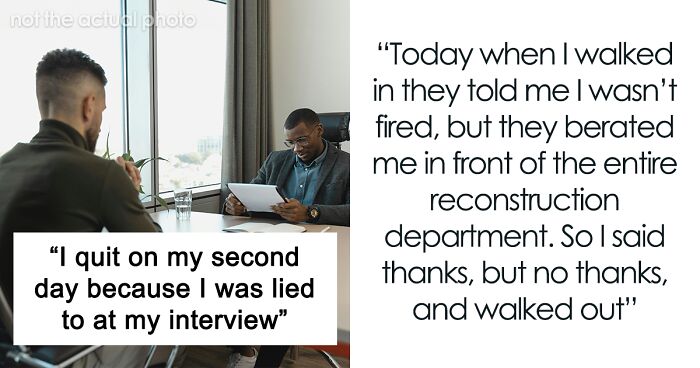

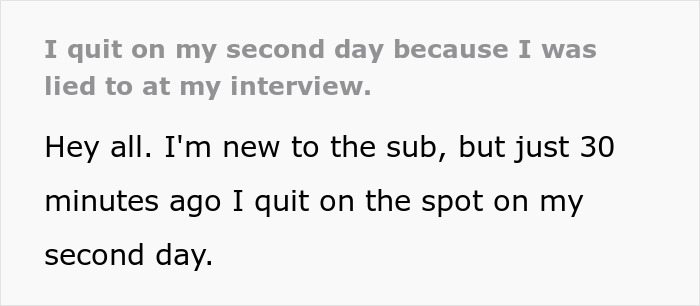
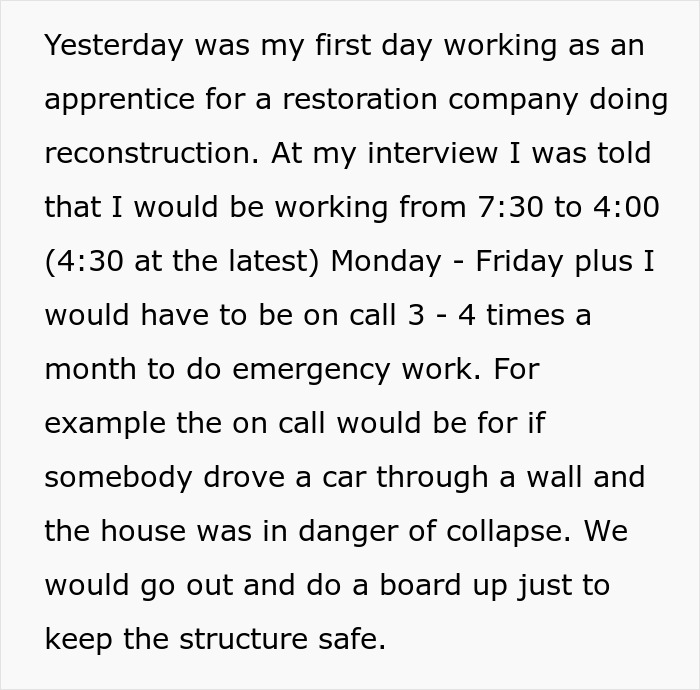
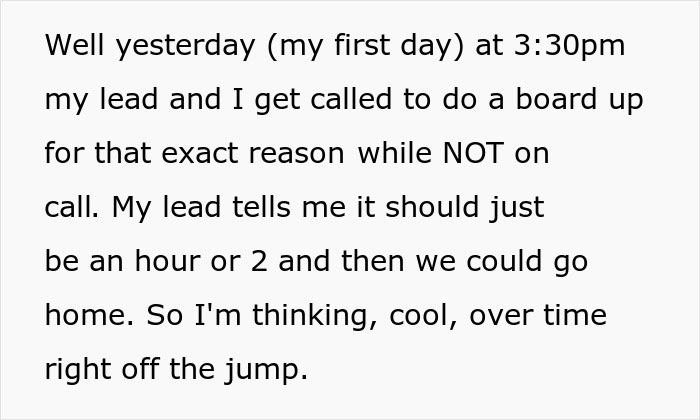
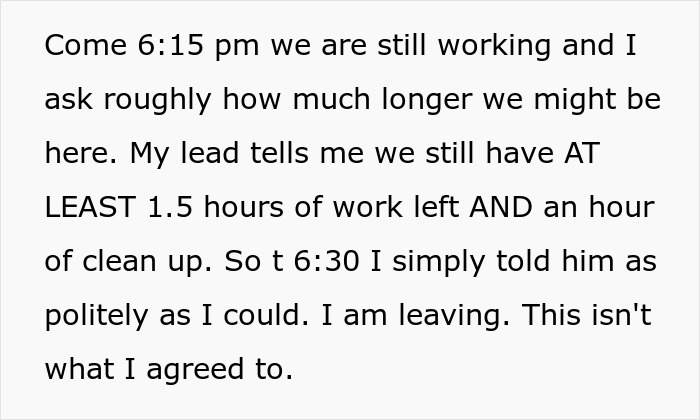

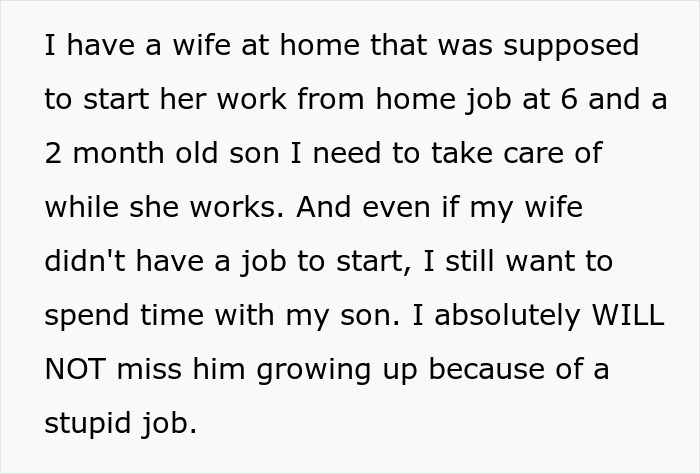
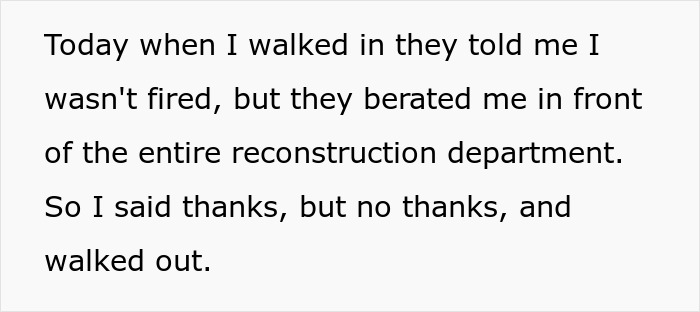
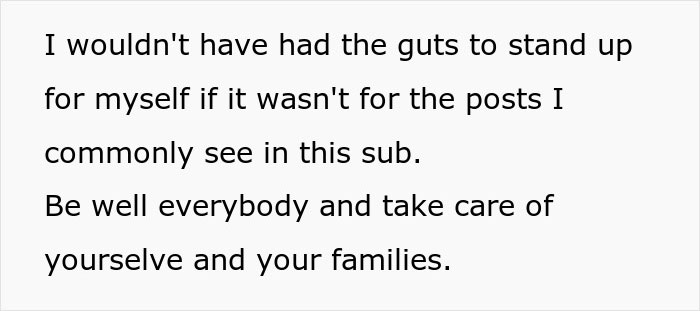
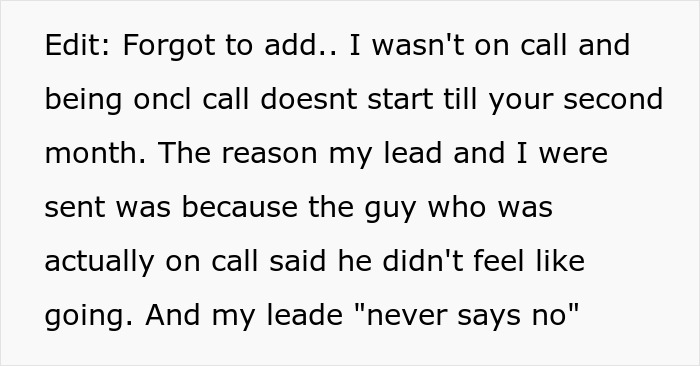
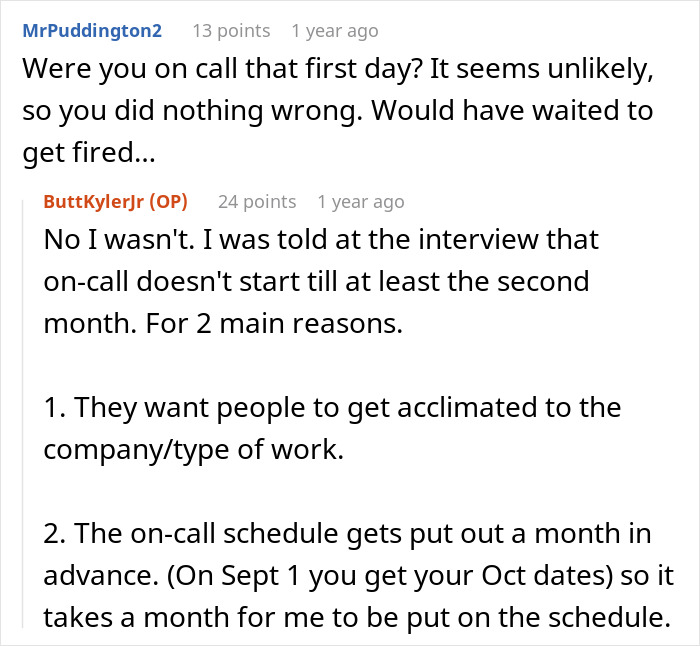
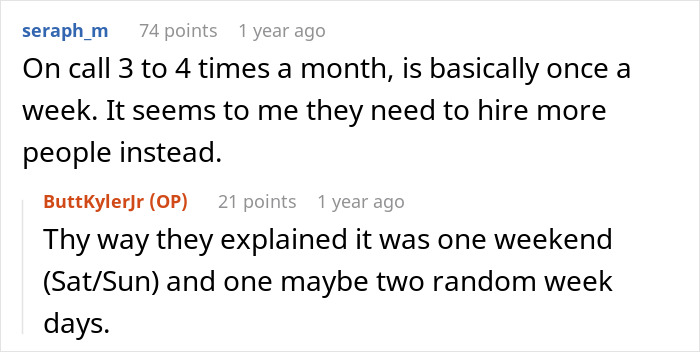
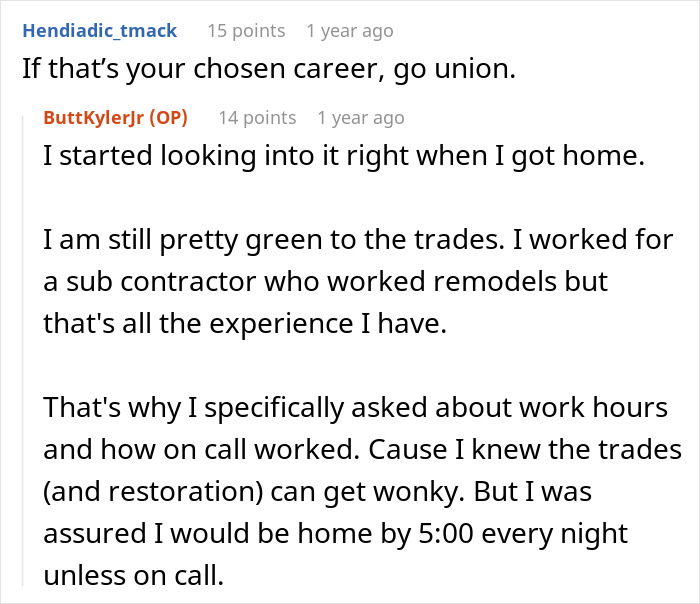
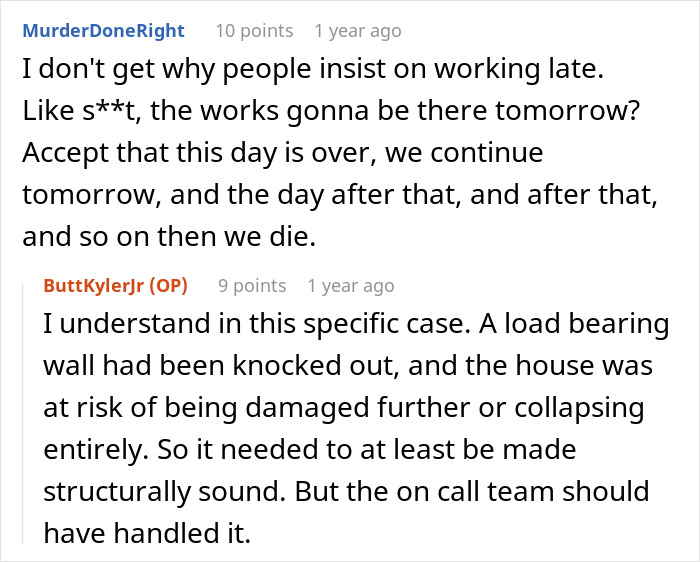
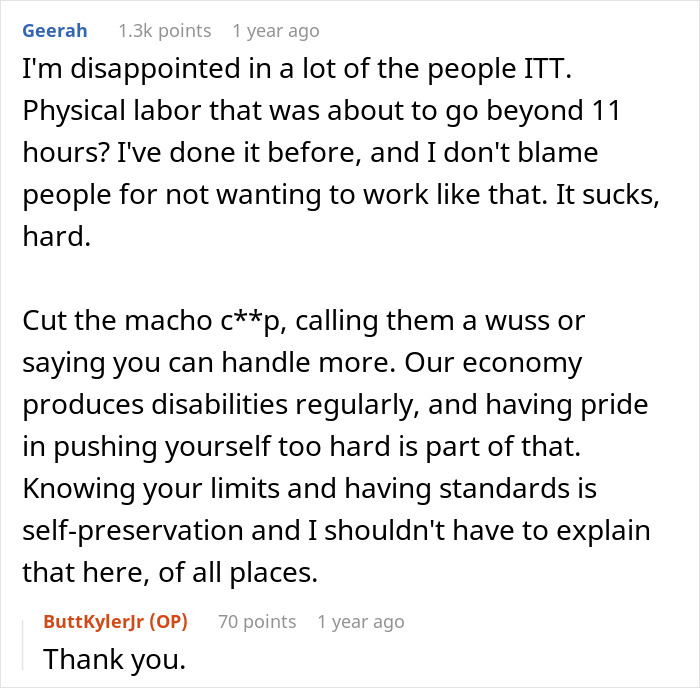
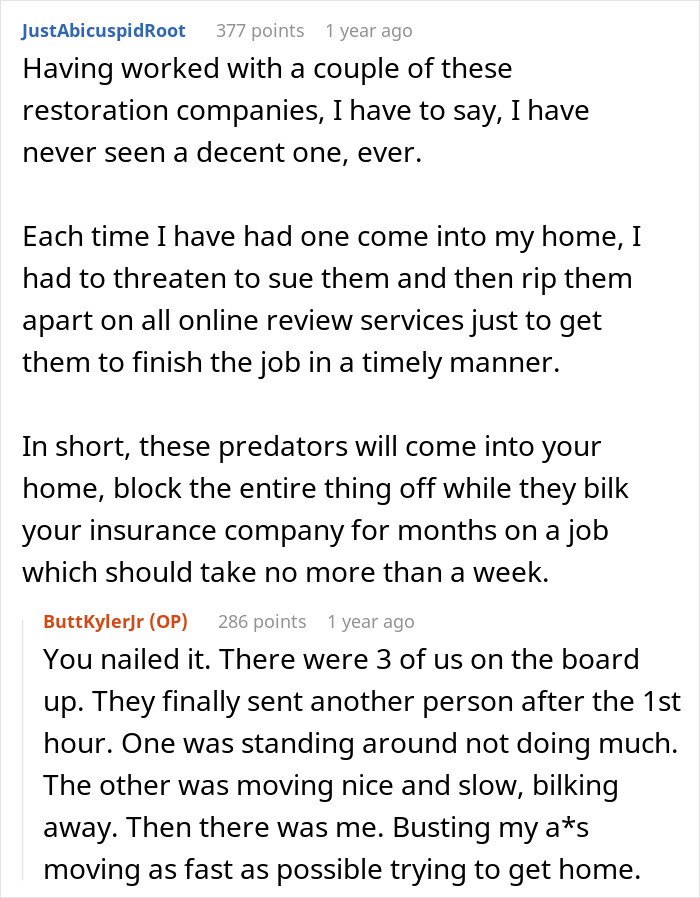
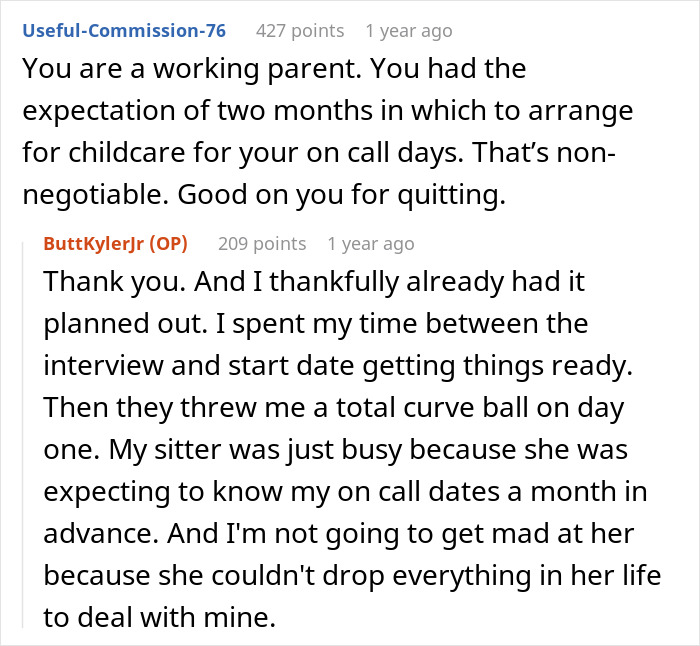
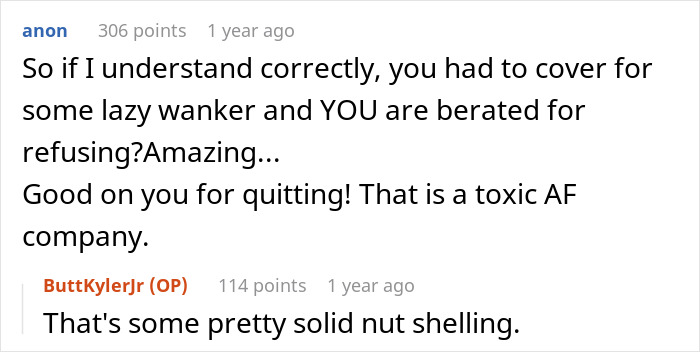
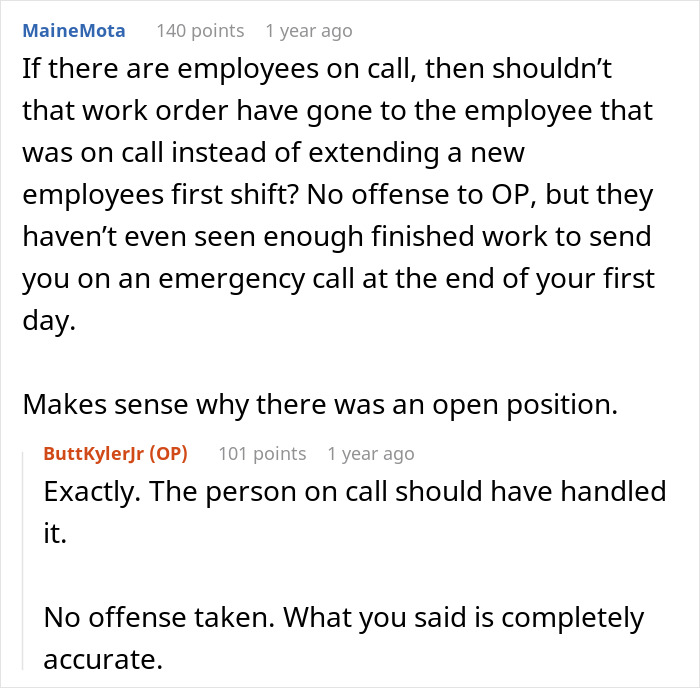
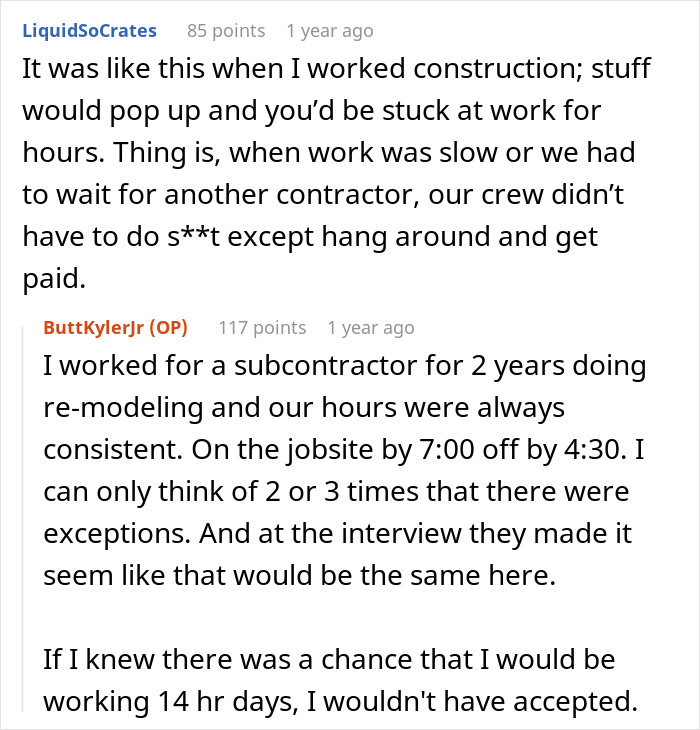
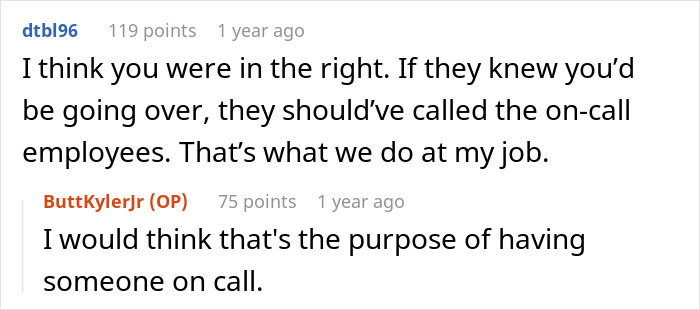
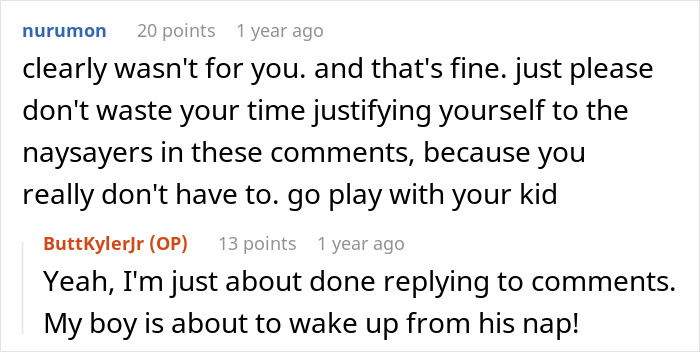
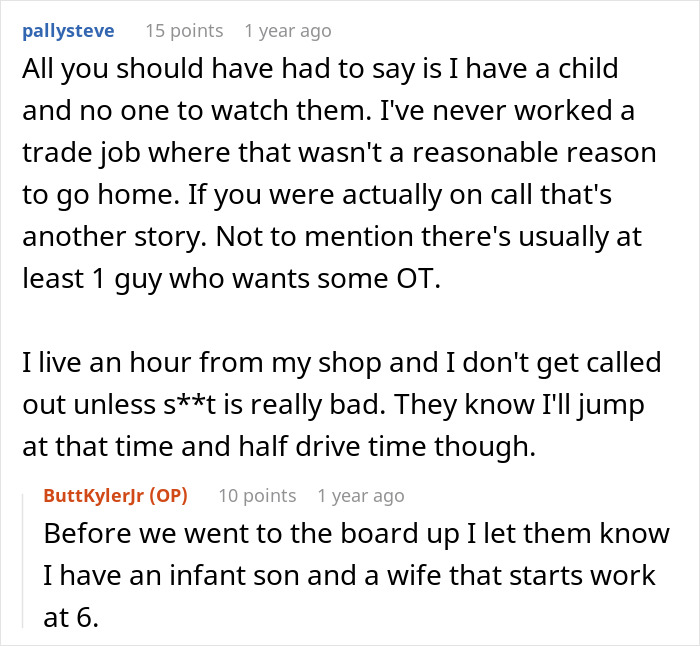
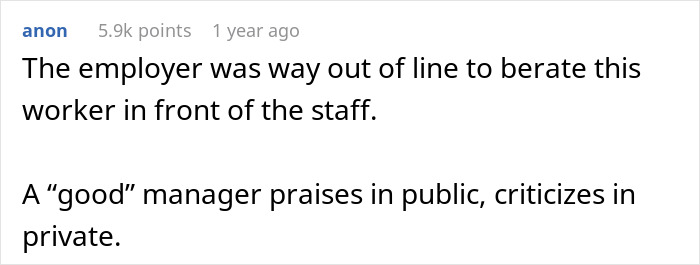
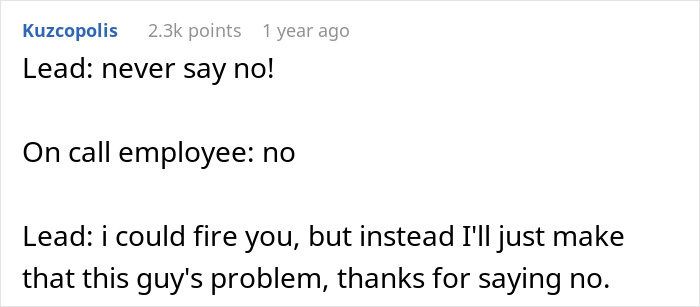


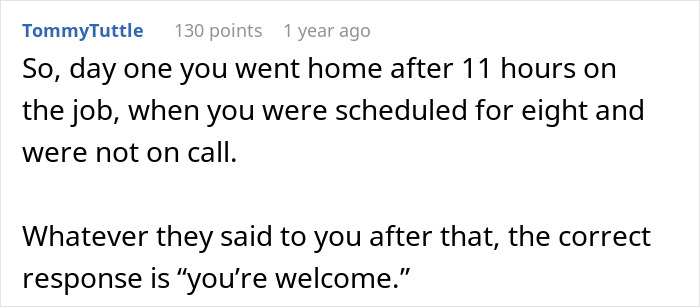






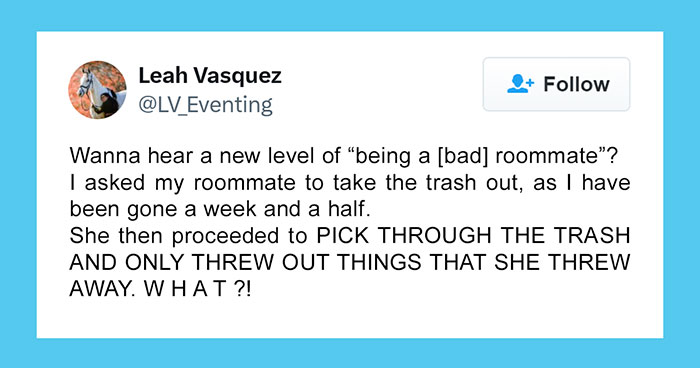











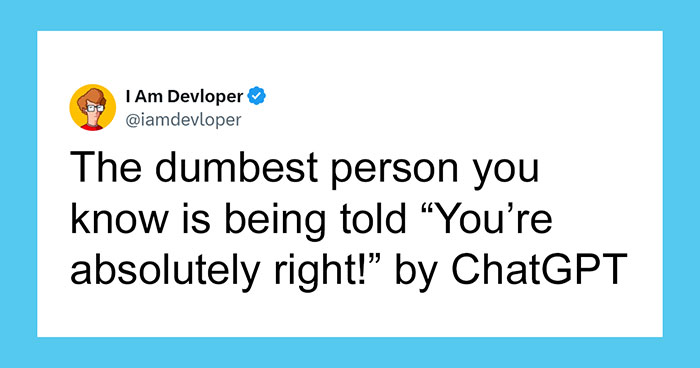


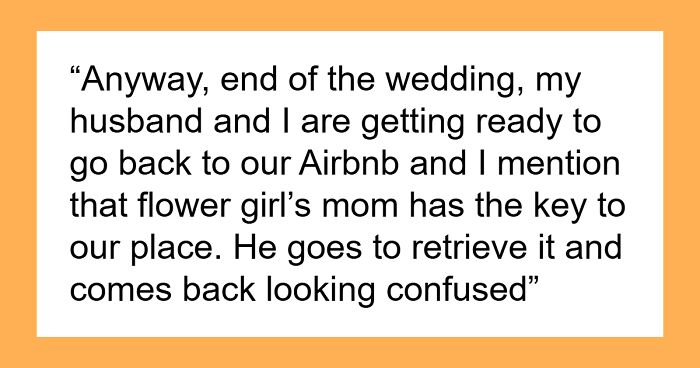







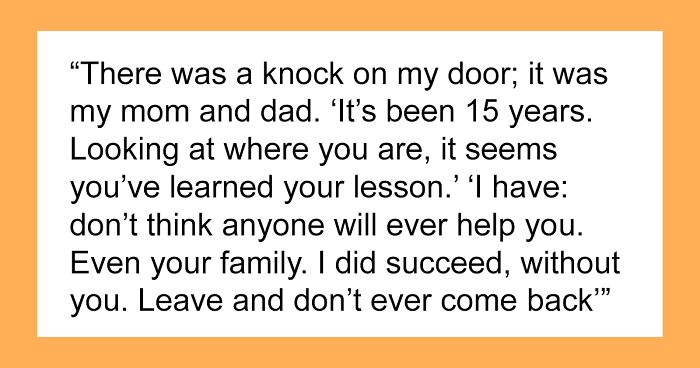















47
22